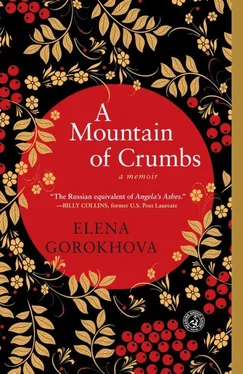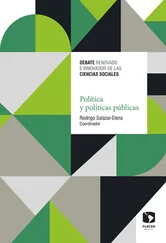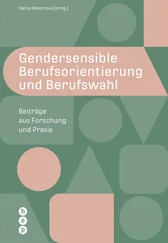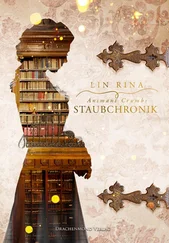I must be in the dean’s office in ten minutes, an appointment I was ordered to keep by the department’s party secretary, who was so livid that he hardly said anything because he couldn’t unclench his teeth. This meeting is going to be another expression of official outrage, a pro forma scolding.
I’ve never seen the dean before, the only proof of his existence an impatient signature on the department’s rules posted on billboards, Dean Maslov. I timidly knock on the door, as if I don’t want him to hear it, as if his not hearing it would excuse me from this visit. But the voice inside commands me to come in, and I creak the door open. His office is cluttered with chairs, filing cabinets, and papers spilling out of folders; it smells of tobacco and dust. A wrinkle-free Brezhnev in oil frowns from the wall above the desk. Dean Maslov is short and dense, his weight solidly packed inside a suit. He looks like a pirate, one eye covered with a black patch, a pipe jammed between his fingers. A communist pirate, a pirate dean. He blows out smoke and motions to the chair on the other side of the desk.
“So what have they been telling me,” he says, peering at me through the smoke, “you’re leaving us?”
“I’m married to an American citizen, so I guess I’m leaving.” Before coming here, I assembled a few stock phrases from the dustbin of jargon used in speeches and administrative orders tacked to door frames.
He draws on his pipe, squinting—whether from the pleasure of the tobacco or disgust at seeing me, I don’t know.
“Isn’t it a shame—as soon as we raise a decent student, a candidate for graduate school, she’s snatched away by the West. Well, too bad. We will have to be more careful hiring young single women to teach American students.”
I know this is a threat—not to me, but to future foreign-language majors applying for summer teaching jobs. It means that from now on these jobs will go only to women who are married, preferably to KGB officials, like the director of the American program.
“Everyone wants to go to America.” His pipe leaves a trace of smoke in the air as he throws up his arm. “America, America—that’s all we hear. America the paradise. America the land of abundance. Strawberries in the winter and a car for every citizen.”
He pauses and peers at me with his one eye.
“I’m not leaving because of strawberries in the winter,” I say since he expects me to say something. “Or even a car.”
“Not even a car, eh?” He cranes his neck as if to take a better look at me. “Well, why then?”
Although he is sharp enough to know that I am not going to tell him the truth, Dean Maslov leans back and waits for me to respond. He looks the same way Nadia from my high school looked at me yesterday when I ran into her in the street. Nadia is now a refusenik : she is Jewish, and nine months ago her application to leave the country was refused by the local visa department. Her parents, her grandmother, and her husband are now blacklisted and shunned. I felt guilty that I can leave and she cannot, too embarrassed to admit to her that my real reason for leaving has nothing to do with the cause of political freedom. It has to do with my mother. Two years ago, if Boris had asked me to marry him, I would have hopped on the first train headed for Kiev, a thousand kilometers away.
“I got married,” I say. “People get married and leave.”
The dean sets his pipe down in a heavy crystal ashtray on his desk and gets up. He was not really expecting to get an answer. According to procedure, he has to check off in a book that the talk has taken place.
“Where are you going in America?” he asks, leafing through papers on his desk.
“Texas.”
“Ah, the land where they kill presidents.” He walks over to the bookshelf, stops, and runs his fingers over the book spines. “Well, good luck.” I don’t really know what killing of what presidents he is talking about. “I’ve been to America, you know,” he says. “I lived there for a year—a cultural exchange in the early sixties. A fascinating place.” Dean Maslov stuffs his hands into his pockets and rocks on his feet, his eye on the window, where little sticky leaves curl out of buds on poplar branches. “But you don’t want to get fired there, or get sick, or get old. There is no safety net, no collective to help. You are on your own.” He half-smiles for the first time. “It made me feel grateful for my guaranteed ninety-ruble pension.”
This is about what I expected to hear, the talk about collectives and ninety-ruble pensions, although I thought that university deans, considering their ideologically sensitive positions, made more than ninety rubles. I thought that Maslov would limit this talk to a pointy reprimand or, possibly, an angry accusation of squandering the state’s resources, wasted on my education.
“What do you mean, the land where they kill presidents?” I ask.
“You don’t know?” He wags his head to show me how hopeless he thinks I am. “In 1963 an American president was killed in Dallas, Texas. Didn’t you know that?” He looks familiar now, an authority lecturing an underling. “ Your president. You should brush up on your history.”
I am not sure how I’m supposed to know what happened in America when I was eight as I cannot even find out what is happening there now. Yet he is right: I am as ignorant of my new country’s history as I am of everything else.
Dean Maslov moves back to his desk, to his spilling papers and his pipe. He must be in his mid-sixties, my mother’s age, which means he also went through the post-revolutionary chaos and the two wars. Maybe that’s why he’s tried to warn me about America. Like my mother, he comes from the first Soviet generation, from the time when vranyo was still fresh, still a little curly sprout. He comes from the time when it hadn’t yet morphed and metastasized and tunneled its way through our tissue the way my father’s cancer wormed into his bladder and his lungs. When it hadn’t yet crept through every millimeter of our flesh—this lie, which my father helped cultivate after he’d lost his teeth to scurvy, which my mother, busy organizing union meetings and funerals, barely noticed. Maybe Dean Maslov played the same crumb game my grandmother—everyone’s grandmother—invented during the famine; maybe he, too, saw a piece of bread swell into a whole mountain of crumbs.
He feels the pockets of his jacket for a box of matches, squints his one eye, and lights his extinguished pipe—not quite a pirate, not quite a pundit or a leader—an old man ready to retire on ninety rubles a month.
A silly thought floats into my head: this is what it has all come to—a mountain of crumbs.
I get up and carefully close the door behind me. The pro forma talk has taken place.
I AM ON A bus, clutching a handbag with my exit visa and an Aeroflot ticket to America. The Aeroflot office on Nevsky was empty, as always, since it deals exclusively with international travel. I went in and asked for a ticket to the United States. The girl perched on a high seat behind the counter winced, sized me up with stiff eyes outlined in imported mascara that doesn’t have to be mixed with spit, and scrutinized my visa while I stood on the other side, staring at her chin. Then, with angry reluctance, after taking my passport to the back room to consult her KGB supervisor, she wrote out a ticket in her diligent official handwriting, reserved for foreign destinations.
I get off three bus stops before my house and walk home in the August evening light. I walk across Theatre Square, past a monument to our composer Glinka, past a Kirov poster announcing the opera October, scheduled for tomorrow. My mother and I saw it when I was nine, so it has been playing there for at least fifteen years. In the second act of that old October, after the people had grown disillusioned with the tsar, after a chorus of soldiers had brandished guns toward the Winter Palace and a quartet of children had begged for food, an actor with a goatee and a bald wig thrust his arm out, Lenin-like, and announced that the October Revolution had prevailed. The crowd onstage burst into cheers, and then Lenin’s chest heaved as he took a deep breath to launch a high note that should have trumped everything that came earlier. Everything, from the first disgruntled peasant to the pack of sailors hoisting a red flag on top of the Winter Palace, even the lemonade and éclairs in the buffet during the intermission. For a second the note teetered on the brink of the required triumph, but then it collapsed into such a grinding bray that the whole audience, including people like me, with no musical ear whatsoever, simultaneously gasped.
Читать дальше












